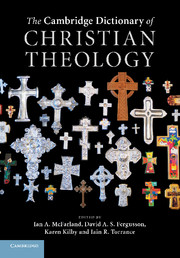M
Published online by Cambridge University Press: 05 June 2012
Summary
Magisterium Derived from the Latin word for ‘teacher’, ‘magisterium’ is a term in Catholic theology for the teaching office of the Church, rooted in Christ and transmitted through apostolic succession to all bishops in communion with the papacy. According to the Catechism of the Catholic Church, because its task is to preserve the faithful from error (§85) through authoritative interpretation of Scripture and tradition, the magisterium possesses the charism of infallibility with respect to matters of faith and morals (§890). Yet, because this charism can be exercised in different ways, a distinction is drawn between the supreme and the ordinary magisterium. The former is exercised when the pope, either by himself or together with the college of bishops, proclaims a doctrine ‘by a definitive act … for belief as being divinely revealed’ (Cat., §891; cf. §88). By contrast, the ordinary magisterium refers to the process by which bishops (and especially the pope) propose ‘a teaching that leads to better understanding of Revelation’ through less formal means like preaching or catechesis (Cat., §892).
It is Catholic teaching that the magisterium, while not itself a source of revelation, nevertheless forms a functional unity with Scripture and tradition, such that ‘one of them cannot stand without the others’ (Cat., §95). This claim that proper interpretation of Scripture requires a teaching office is a central point of disagreement between Catholics and the Churches of the Reformation.
- Type
- Chapter
- Information
- The Cambridge Dictionary of Christian Theology , pp. 295 - 330Publisher: Cambridge University PressPrint publication year: 2011



